
Content
Q&A with Igor van Gemert

| Igor van Gemert Director, Founder Innergy Creations BV |
Club of Amsterdam: We now just launched the Jukebox, which allows users to download and listen to mp3 files with our lectures – a great new feature, which will certainly be appreciated by our global community. How do you see the coming development of services like this?
Igor van Gemert: I think this small application adds value to the website. We added some extra meta data to every lecture audio file. So you can search on topics, speakers etc. and listen to a preview without the downloading mumbo jumbo. We will also include a new release of the jukebox with RSS feeds and email alerts. This means you can simply subscribe to a specific field of interest. Also we will include specific author links to online user community’s like openbc.com. The next step would be streaming TV channels for all topics within clubofamsterdam.com ! I personally think that these small applications are the first steps in the development of clubofamsterdam communication platform which enables the user to speak out and enable them to harvest the insights in other disciplines.
The next version of Internet or Web 2.0 is going to have a deep impact on online communication. Can you give some outstanding examples?
Igor van Gemert: This is a hard question. So for the people do are not familiar with the term see this definition “Web 2.0 is a term often applied to a perceived ongoing transition of the World Wide Web from a collection of websites to a full-fledged computing platform serving web applications to end users. Ultimately Web 2.0 services are expected to replace desktop computing applications for many purposes.”
The web is so huge so I will give 3 examples and explain a bit why I like them.
www.thinkfree.com/common/main.tfo ThinkFree Desktop is the compatible alternative to Microsoft® Office. It includes Write (word processing), spreadsheet (Calc), and presentation (Show) applications that let users create, edit, and perfect their documents. This revolutionary software is platform independent and compatible with Windows, Linux and Macintosh systems; enabling almost anyone to use it-no matter what operating system they’re running. It’s a new way to create you documents and work online with other people.
www.last.fm/join Your ticket to the social music revolution! With Last.fm on your computer you can scrobble your tracks, share your music taste, listen to personalized radio streams, and discover new music and people. Why do I like this ? It’s completely logic that these applications are evolved on the internet. Music is about communication and sharing emotions. It is very interesting to see how your music taste is “unique” related to other people. Music dating events are the next step I guess. It would be fun to meet people IRL who share almost the same music taste as you.
www.Youtube.com Why ? It’s about enabling people to become famous in 5 minutes and it’s a excellent example how IPTV will hit the web. It’s also interesting to see how community’s interact with the published media. What will it replace ? Your TV in 5 years. Who will be in charge ? In my opinion GoogleTV will be visible in every household in 2016 or even faster.
Personally I’m a lover of radio plays and am quite happy that the introduction of ipod, ebooks etc now gives us the tools to listen to this new version of radio whilst driving in a car, traveling by train, plane etc, jogging … “Mobile” content seems to be high in demand. What developments can we expect?
Igor van Gemert: More integrated (location based) streaming media services like; you are listening to “The police” would you like to get 20% discount ? Go to the nearest Free Record Shop and show your personal discount coupon code with your mobile. It’s only valid for 1 hour… Integration of RFID in phones for (payment) services. So you enter the shop hold you mobile phone to a rfid reader. Show me something I like. The system automatically selects new titles based on my previous purchases. So the mobile becomes a smart internet browser, media player, communication and transaction/tracking tool. The mobiles phones are becoming more advanced every day. This means in a while you just buy and download your high quality track at your local telephone operator. Upload it in your pc, your hifi set etc.
Club of Amsterdam blog
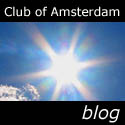 | Club of Amsterdam blog October 26: Synthesis of elBulli cuisine October 14: The new Corinthians: How the Web is socialising journalism September 20: A Future Love Story |
News about the Future

Paint-on semiconductor outperforms chips
Researchers at the University of Toronto have created a semiconductor device that outperforms today’s conventional chips — and they made it simply by painting a liquid onto a piece of glass.“Traditional ways of making computer chips, fibre-optic lasers, digital camera image sensors – the building blocks of the information age – are costly in time, money, and energy,” says Professor Ted Sargent of the Edward S. Rogers Sr. Department of Electrical and Computer Engineering and leader of the research group.
The Toronto team instead cooked up semiconductor particles in a flask containing extra-pure oleic acid, the main ingredient in olive oil. The particles are just a few nanometres (one billionth of a metre) across. The team then placed a drop of solution on a glass slide patterned with gold electrodes and forced the drop to spread out into a smooth, continuous semiconductor film using a process called spin-coating. They then gave their film a two-hour bath in methanol. Once the solvent evaporated, it left an 800 nanometre-thick layer of the light-sensitive nanoparticles.

Soft Bath is a soft cushioned bathtub made from special materials. It’s simple: furniture and baths meant for comfort should be soft. Your couch and bed are already soft, and from now on your bathtub will be soft and comfortable!
The Soft Bath is one integrated product with three layers. There is a framework from fibreglass, then a soft layer and ultimately the strong and flexible top coating. This material is strong, robust, and stays flexible. Soft Bath looks exactly like a conventional hard bath and is as easy to install.
Picks from the Summit for the Future 2006
 | Marc Canter: Lifestyle Leadership Both the music and film business is having to take on the reality that they can no longer be followers. They must now grasp destiny in their own hands, or give the future away to Apple and Microsoft. For the new breed of publishers, using blogs and podcasts. there are no real risks, only opportunities. Lifestyle will always remain the driver these industries. Canter rejects long-term scenarios – he prefers real world solutions bridging now and the next five years. |
 | Madanmohan Rao: Risk: Asia’s Winning Card South Korea hopes to become the gaming capital of the world. Bangalore is becoming a leading software development hub. Goodness knows what exactly China is becoming, but already the mobile market in China is the world’s largest. Has this happened because Asia countries are willing to take risks by nature? Or is their business culture fundamentally different from the rest? Yet while some countries are willing to take risks in the IT business, their media remain very closed and conservative – by some “Western” standards. What are some of the scenarios for the preferred futures for media and entertainment in Asia, home to 2/3rds of the world’s population? We also know that groups that isolate themselves from the rest of society quickly radicalize. What does media need to do to keep them in the conversation? |
Summit for the Future blog
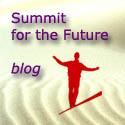 | Summit for the Future blog http://summitforthefuture.blogspot.com July 13: Summary of the Summit for the Future 2006 May 22: Dispatches from the Frontier |
Recommended Book

The World Cafe
by Juanita Brown, David Isaacs, World Cafe Community, Margaret J. Wheatley, Peter Senge
The World Café:
Introduces readers to a simple, yet powerful conversational process for thinking together and creating actionable knowledge that has been used successfully with organizations and communities on six continents.
Includes actual stories from widely varied settings-such as Hewlett-Packard, American Society for Quality, the nation of Singapore, the University of Texas, and many, many others-to show the World Café process and results.
Clearly articulates seven key World Café design principles that create the conditions for accessing collective intelligence and breakthrough thinking.
The Biology of Business: Key to a Sustainable Future

The Biology of Business: Key to a Sustainable Future
Elisabet Sahtouris
Evolution Biologist, Futurist, Living Systems Design
Introduction
As an evolution biologist, it is obvious to me that we humans are part of Nature and that Nature has been doing business for billions of years, if we take a broad definition of business to be the economy of making a living, of transforming resources into useful products that are exchanged, distributed, consumed and/or recycled. So, to talk about the biology of human businesses, I could simply point out that all our businesses are systems made up of people, who are living beings, and that therefore businesses are living systems or biological entities. QED. However, to say something more useful I need to go back through history to show why most human businesses, despite being made up of people, do not function like living systems, at least not like healthy living systems. Those few that do are swimming upstream against the norm, usually with great difficulty, and that just should not be, need not be and must not continue to be.
Our businesses, unlike those of other species, are organized and run in a socio-political cultural context, and that context has a history. Historical context has a great deal to do with what we believe about ourselves and our world, and when I sort through that socio-political history looking for the most salient influences on contemporary business from my own perspective, I am naturally drawn to the history of science.
Four very important publications by two great 19th century scientists have so strongly shaped our beliefs about our world that they affect everything about human culture including our definition of human nature and the way we do business. They are:
1850, Rudolph Clausius’ On the Motive Power of Heat, and on the Laws which can be Deduced from it for the Theory of Heat
1859, Charles Darwin’s On the Origin of Species
1865, Clausius’ paper on Thermodynamics reformulating the fundamental laws of the Universe as energy constancy and entropy
1871, Darwin’s The Descent of Man
I will argue that Clausius’ model of a universe running down by entropy and the Darwinian model of biological evolution as an endless competitive struggle for scarce resources both give us half-truths about Nature that seemed appropriate in their historical context but are now seen to be fundamentally flawed, thereby seriously mis-leading us and holding up our own natural evolution. The full truth – including the other half of a more holistic view in physics and biology respectively – reveals that Na-ture is on our side in role-modeling the evolutionary leap that would rapidly bring about an energy efficient and globally beneficial human economy that functions like a truly healthy living system.
The bottom line of human experience is that …
Read the full article in the Summit for the Future 2006 Report
Summary of the Summit for the Future 2006
Summary of the Summit for the Future 2006
by Patrick Crehan
Chairman, Summit for the Future 2006
CEO and Founder, Crehan, Kusano & Associates
We’ve been looking at the issue of risk, through many different lenses and we started out with many, many questions. In listening to the conversations today, a couple of threads have emerged – this is my personal sense-making, and I want to share that with you as a conclusion. Starting out with one of the negative ideas; we’ve been looking at death, and that somehow led to a discussion about health. The prevailing approach is ‘curing the disease’, a kind of response to when things are going wrong. What people seem to be saying is that we should think more about a proactive way of looking at these things, ‘from curing to caring’. Looking beyond the body – and looking at the being. Going from a fragmented view of healthcare to a more integrated view of the individual, that combines the physical health with the psychological, mental and emotional health of the patient. We had discussions on entrepreneurship, innovation; these are all part of the human experience everywhere in the world. People have needs, and parts of those needs are to plan, to care for their families, to build and construct, to change the world. Our most basic biology demonstrates the fact that we are driven to embrace change, and to be vectors and factors of change. This is how we are anticipating the world’s development. The downside of our investment is that we are fighting these changes as if they were dangerous risks.
Another thread was the ‘politics of fear’ as associated with risk. People manipulate people. Communication is a form of manipulation, and one of the things we do is invite force. It’s a form of violence, the way that we propagate politics of fear to influence how people behave. We need to understand what is real in terms of our perception of risk. Risks to business, risks to the environment, risks to the planet, risks to ourselves. And in terms of reality, one point was that money is not a map of the world, but it is certainly a partial one. And if it is the only one we use we will not navigate this landscape of risk very well. So the idea is to move beyond money towards something that is more value-based and includes money. After all it is one of the most powerful tools ever invented, and it is the most powerful cause for change in the world, but so is communication, and knowledge. In that sense, like for instance in any diet, it needs to be balanced or we break out in spots. So this whole idea of money, scarcity, fragmentation again, another thread leading to values and the idea that there are scarcities but other things that you value exist in abundance. Looking at the whole area of media and entertainment, the experience economy – it’s interesting, young musicians tend to look at the media business as a great evil, but well, you know, nothing is simple and with success and other things those views will change. But what is also interesting is how the world in media and entertainment is driving communication, connectivity, and the diffusion of knowledge, thus creating new forms of the economy. Peer to Peer sharing, Open Source, all of those things are already movements beyond a mere money-driven society towards a broader, more value-based economy. So it is quite interesting that in this area, there are already models emerging of different methods, and these are very positive images for the future. It shows that it is possible to go beyond money. The thing is not to say to people ‘oh you shouldn’t do this because no money is coming out, you should give them directions to go. Business has been a creative force in that, entrepreneurs, and small businesses, and some of the people speaking of entrepreneurship spoke about the role of small companies and the fact that small companies can co-exist with large companies and compete, not necessarily in a nasty way, but in a healthy, evolutionary, Darwinian way that is never personal.
Another thread is the whole idea of systems. It is so easy to blame the system. On the other hand, it’s not easy to make changes. So if you feel the need to blame, you can instead look at the system and recognize that part of the way the world is today is in the system, so to speak. But you mustn’t forget that it does come down to individuals – individuals matter, they can make a difference. But they must want to make a difference, they need to know that they matter, and they need to give themselves the freedom to participate in the world in that way. There is movement from the system, where you delegate responsibility away from yourself towards the individual, which has led towards those wonderful emerging ideas about the collective ideas, a collective consciousness, collective intelligence, and the idea that the system as such is a form of life.
Part of the evolution occurs in this early phase of thinking, where the system changes and then moves on. But this emerging collective consciousness is a very positive image, the idea that we are part of that system that decisions do come down to individuals and they can make a difference. So our attitude to governance and leadership – we all are leaders in some way – changes in the way people lead. People become more affluent, more educated, more free. Leadership and governance systems are changing. So there are a lot of interesting concepts emerging from this. In terms of our perception and the meaning of risk, rather than seeing risk as something evil, unnecessary, and the basis of the politics of fear, to see risk as something corresponding to opportunity, see it as a challenge, see it as a force for good. Instead of thinking in terms of problems, give yourself the freedom to do something about it. Maybe having a new view on risk, on your life, on health, happiness, the meaning of money and so forth, this would give you a new freedom to undertake risks and to live with the consequences.
This is where I want to end; it has really been a fantastic meeting. You are an incredibly stimulating and wonderful bunch of people and I am truly happy that we came together.
Newtown – South Africa
| Newtown – South Africa History At the turn of the 20th century, the Newtown Precinct was originally known as the Brickfields. This area was rich in clay, brick making became the most popular form of generating income, and even better if an individual had their own clay mixer for making bricks. By 1896, about 7 000 people of all races lived in the Brickfields area, later named Burghersdorp. As this land was close to the centre of Johannesburg and the railway line, many businesses and immigrants coming from overseas bought stands in Burghersdorp. Soon, trading companies, banks, brick companies, a brewery, and fisheries moved into the area. Many Indians set up shops and eateries along Locatie (now known as Carr Street), which led to the station. In April 1904, the fire brigade set the area alight destroying everything in the inferno – a measure to combat the bubonic plague that had broken out. The area was surveyed, re-planned in unbecoming haste and renamed Newtown by October 1904. A commercial area where vast fortunes in milling, production of sugar and food merchandising would come to existence. Newtown has now become synonymous with the heritage and culture of South Africa and especially Johannesburg. Hence it is universally known as the Cultural Precinct. Now As with most major cities around the world, Johannesburg’s city centre has been through a period of stagnation and degeneration. However, in the past few years a number of initiatives have been adopted to reverse these trends. One of the most important of these is the Greater Newtown Development. Newtown is being developed into a vibrant, mixed-use area with a unique character based on existing cultural facilities – the indelible Kippies, the world renowned Market Theatre, Moyo Restaurant at the Market, the buzz of Nikki’s Oasis, the numerous international artists who have graced the Newtown Music Centre and not forgetting the unique shopping experience of the Oriental Plaza just around the corner from Newtown. |
Agenda
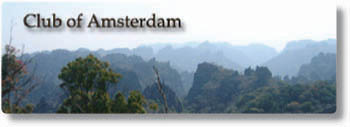
Our next events start after the summer break.
Club of Amsterdam Open Business Club
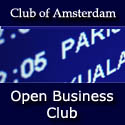 | Club of Amsterdam Open Business Club Are you interested in networking, sharing visions, ideas about your future, the future of your industry, society, discussing issues, which are relevant for yourself as well as for the ‘global’ community? The future starts now – join our online platform … |

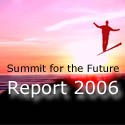
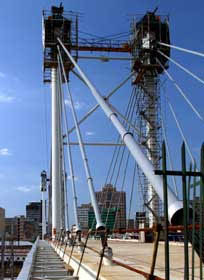
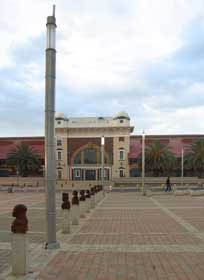
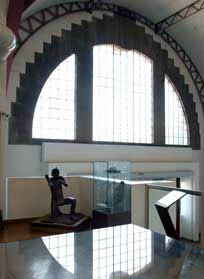
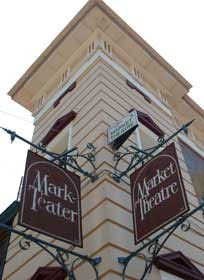
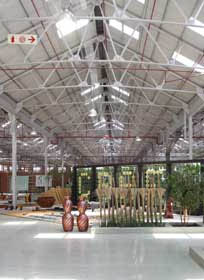
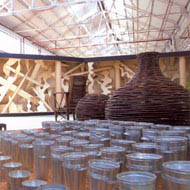



Customer Reviews
Thanks for submitting your comment!